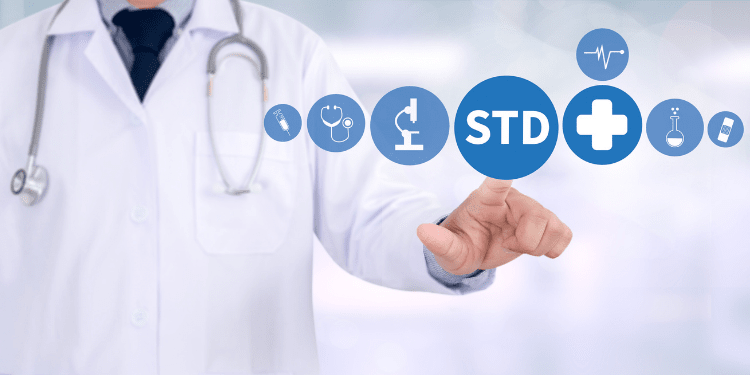- Suite 17, 117A Harley Street London, W1G 6AT
- 020 34751653
- Monday - Friday
9:00 - 18:00 - Saturday - Sunday
10:00 - 14:00

Sexually transmitted diseases (STDs) are prevalent, affecting most sexually active people. Direct contact with an infected person during anal, oral, or vagina sex is a high-risk factor for contracting STD. In some cases, contact with a tear, cut, or abrasion on the skin of an infected person can cause an infection.
If detected on time, you can manage and easily treat most STDs to avoid further health problems. Below are common STDs and their treatment.
Presently, no cure is available for HIV, but the available medication for HIV can prevent progression of the disease. With the right medication, people living with HIV can live as long as possible. Most people with HIV can now live a relatively healthy life.
Chlamydia is one of the most prevalentsexually transmitted diseases, and it is easy to treat. If you have chlamydia, your medical professional can administer a course of antibiotics to cure the disease.
To treat syphilis, the sexual health specialist has to consider the stage of the infection. During the early stages of syphilis, your doctor can administer medications like penicillin, but in the later stages, treatment may not be possible. The damage done in the body by the late stages of syphilis infection is usually irreversible.
Like chlamydia, treatment of gonorrhoea is easy. With a course of antibiotics, you can easily treat gonorrhoea.
Oral herpes usually affects the lips and mouth, and transmission is through sharing of lipsticks, utensil, cosmetics or kissing an infected person. There is no permanent cure for oral herpes, but medications are available to manage the symptoms.
Genital herpes or HSV-1 affects the genital area and rectum. Genital warts spread through sexual contact with an infected person. Like oral herpes, there is no cure, but medications can manage the symptoms.
Management of acute hepatitis is possible with medication, but hepatitis in a chronic stage cannot be treated, and the virus remains in the body of the infected person for a lifetime. However, medications are available to prevent chronic hepatitis from developing further.
Treating public lice and scabies is quite easy. You can treat scabies and pubic lice by using medicated body washes or shampoos.
No particular cure is available for HPV. Genital warts resulting from HPV infections tend to clear off without treatment. You may decide to apply medication to treat warts, undergo electro-surgery or freeze them.
Removingwarts does not treat the infection, and the infected person can still spread the virus without visible warts. HPV infection may recur after some years, so medical experts recommend that people should get the HPV vaccine at a young age before they become sexually active.
If you are residing in London and you have an STD, book an appointment here. You can also visit our Sexual Health Clinic or call us on 0203 475 1653 for more information on the treatment of STDs.
Our Sexual Health Clinic is located on Harley Street in the heart of London.
We are only a 5 minutes walk from Regents Park station, 10 minutes from Great Portland Street and 15 minutes from Oxford Circus.